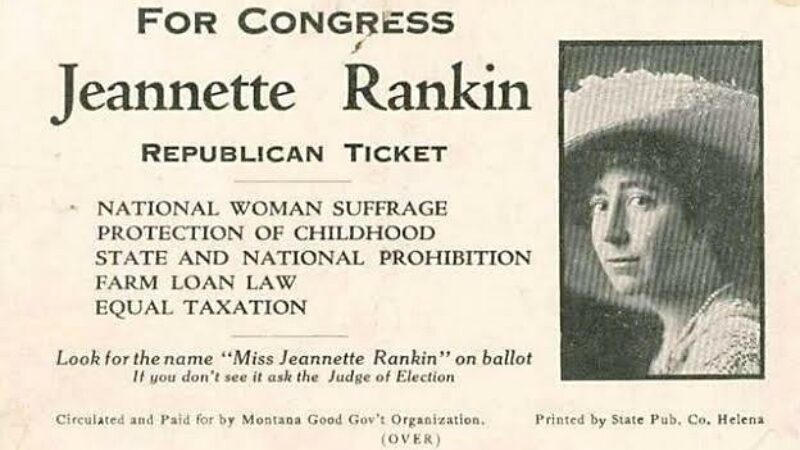Blog
The Disagreeable Woman
August 28, 2018

By Whitefish PowerHouse, Cindy Dyson
Are you agreeable?
Are you more agreeable than the men you work with? More than your male friends?
These are questions I’m asking myself this summer as I run for political office for the first time. I would not be surprised if Jeannette Rankin, the first woman elected to Congress, wasn’t asking herself these questions one hundred years ago when she was back in her home state of Montana for the summer of 1918 after losing her battle in Congress to give every woman in the United States the right to vote. Knowing Rankin, she was likely spending the summer strategizing how to come out swinging when Congress reassembled in January, and asking herself if she’d have won had she been more agreeable. It was a question biographers believe she asked herself often.
Rankin was known to be difficult. This heroine of the women’s suffrage movement had alienated the National American Woman Suffrage Association. She’d lost friends and supporters. She did not suffer fools nor do-nothings with the grace expected of the female sex.
Female agreeableness sprung back to into the cultural discussion last July when former Google employee James Damore, wrote this in a long memo about workplace diversity programs: “As mentioned before, this likely evolved because males are biologically disposable and because women are generally more cooperative and agreeable than men.”
Psychology professor turned public intellectual Jordan Peterson had delved into the subject, saying, “If you want to hire people to exploit productively you hire middle age women who are hyper conscientious and who are agreeable. Because they’ll do everything. They won’t take credit for it and they won’t complain. And that’s nasty. One of the things you have to be careful of if you’re agreeable is not to be exploited. Because you’ll line up to be exploited.”
The word “agreeable” caught the nation’s attention.
And once again women activists and leaders were asking themselves: Am I too agreeable? I asked myself as I contemplated running for office if my female hormones, evolved to make me tolerant and responsive to the needs of infants, as the theory goes, would render me easier to manipulate and exploit by special interests and lobbyists should the voters of Whitefish choose me?
I wanted to declare a resounding, “No!”
But, always the but, a striking similarity comes across those hundred years between Rankin’s historic political win and today. One word -- nasty.
Nasty as the antidote to agreeableness.
“Tell the truth about what you think,” Peterson advises women who desire to shed unwanted agreeableness. "There’s going to be things you think that are nasty and harsh. And they probably are nasty and harsh. But they are also probably true.”
Women across America embraced the word after Donald Trump declared in a Presidential debate, “Such a nasty woman,” when his opponent, Hillary Clinton, dared to say Trump might try to find a way out of her proposal to raise social security on the wealthy.
Perhaps Rankin was thinking back to that summer one hundred years ago after she had lost her first battle to give women a voice at the ballot box, when, near the end of her life she was asked what she would have done differently if she had her life to do over.
“If I had my life to live over,” she answered, “I would do it all again, but this time I would be nastier.”
So, one last question. If you were to be a little nastier, what would that look like and where would you start?
Byline: Cindy Dyson is a writer and candidate for House District 5, Whitefish,



